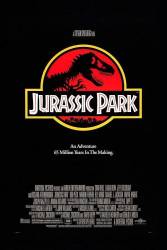
Question: Are the people present at the digging site when they're discussing new approaches to analyzing skeletons supposed to be paleontologists in dr. Grant's group? If so, why would they laugh at his musings of "how dinos learned how to fly"? And why would he have to explain it to them? Seemed to me like he is explaining very basic stuff to the people that would already know this (and of course, to the movie audience).
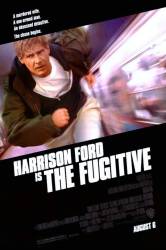
Question: At the very end, what was in the plastic bag that Tommy Lee Jones' character gives to Harrison Ford?
Answer: It's a cold compress. You squeeze it, and the inner bag breaks mixing chemicals and it gets very cold. It helps to minimize swelling. He gave it to Kimball for all the bruises he had.
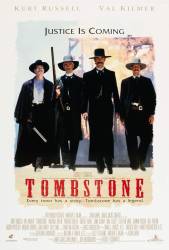
Question: What did Doc mean when he said "It's not revenge he's after. It's the reckoning"?
Chosen answer: A reckoning is like a judgment day, exacting retribution for one's actions. Doc was very well educated and had a very large vocabulary. He was correctly pointing out the subtle difference between revenge (to make Wyatt feel better about losing Morgan and about Virgil's crippling injury) and the fact that Wyatt was bringing about a judgment day (or reckoning) for each of the men who hurt his family.
Answer: I've spent a lot of time thinking about this very question, and here's what I've come up with. I think there are at least two differences between revenge and a reckoning. First, I think it has to do with the scale of the response to an offending action. Revenge, in my mind, is an eye for an eye, i.e, "You killed my brother and wounded another, so I will inflict the same action on your family (or group, gang, whatever). " A reckoning is less a measured response to an offending action and more of a full-scale punishment, i.e, "You killed my brother and wounded another, so I will now slaughter your entire family-including those who were not directly responsible for the offending action." Second, I think there is also a difference in motivation. Revenge tends to be a very personal response to something, whereas a reckoning tends to be more of a response fueled by a need for justice. In Wyatt's case, it was both. He was enraged by what happened to his family, but was also a lawman.
Thank you for this response! I've only seen Tombstone a million times and asked the same question every time. It's hard to separate the difference between the two but I believe you nailed it. Well done.
I'm thinking the opposite in terms. Revenge is "Reflexive" and is generally any means necessary (out of an abundance of pain or rage) to hurt the other party. "Revenge is a dish best served cold." If one is exacting justice there's no need to be cold hearted. Therefore, Reckoning is (to me) a fair balancing of the "scales" hence "an eye for an eye." Not only consequences of actions as it were but a corrective action to an incorrect circumstance. Just my understanding.
The problem with that theory is there is no difference in the end because the end result was the same...the killing. True reckoning could have only been achieved though the apprehension and punishment by trial and jury, anything other than that is simply revenge.
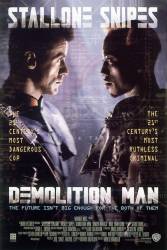
Question: I remember seeing this movie multiple times years back, and i distinctly remember the restaurant being Taco Bell, why the sudden badly dubbed pizza hut in the new television version?
Answer: A number of the European releases of the film replaced Taco Bell with Pizza Hut, as Pizza Hut has a significant international presence, whereas Taco Bell is relatively unknown outside the US, with very few restaurants. While most versions around these days keep the US original dialogue, the altered versions do occasionally crop up, particularly on television.
Answer: In South Africa we also had a version that called the restaurant Burger King. I just always assumed that they changed the name when a franchise offered them more money for product placement.
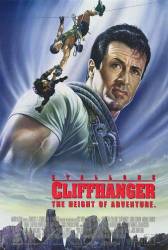
Question: Why was Hal mad and blamed Gabe for Sarah's death? It wasn't his fault. Also, how did Sarah get to that height at the beginning of the movie with no climbing experience? I mean, I can barely climb an indoor climbing wall, but she can climb a mountain like a walk in the park. (02:16:00 - 02:16:35)
Answer: There was no realistic reason. First, the steel buckle on the safety harness would never just bend and break like that. The accident was not Gabe's fault, but Hal is supposedly so angry and grief-stricken that he unfairly claims Gabe ignored his advice when rescuing her. The movie uses melodramatic plotting to contrive a conflict between the two men. It's also unrealistic that Sarah, an inexperienced climber, was able to make such a difficult climb, even with Hal's help. The movie had many plot holes.
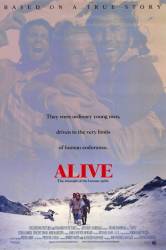
Question: I'm curious as to why Paéz is the narrator in the beginning and end of the film, when the movie focuses mainly on Canessa and Parrada as main characters. Almost all of the boys are alive today, and even if they weren't it is not Páez himself who is being interviewed but John Malcovich as Páez. So I'm still curious as to why they chose Páez instead of Parrado or Canessa, as they are both alive today.
Answer: Keeping in mind that some parts of the audience were not familiar with the details of this story, using Paez as the narrator retains some of the suspense of Canessa and Parredo's journey across the Andes. If the audience is not told at the start that they survive, at least some viewers may have considered that one of them may die during their trek to civilization.
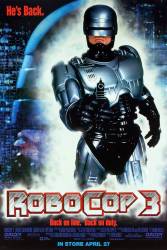
Question: Is there any reason why this film was toned down so much in comparison to the previous two films? Much of this film played like a Saturday-morning-cartoon, and less like the gritty and violent predecessors. Just curious as to why this radical (and unnecessary) change was made.
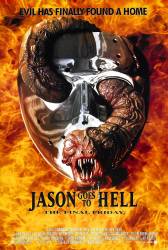
Question: Before taking possession of Deputy Josh, why did Jason shave off the mustache?
Answer: There isn't much of a feasible in-movie explanation. In truth, the entire scene was added by the director because he felt the movies were pretty sexist in that it was mostly women who were either nude or sexualized. Thus, he added an inherently homo-erotic sequence involving one man shaving another stripped man to "level the playing field" so-to-speak. The only real explanation I could think of is that maybe the creature just thought it'd feel uncomfortable transferring to a man with a mustache. But even that's shaky at best.
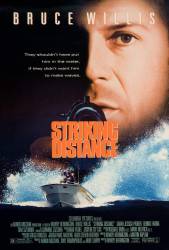
Question: Tom Hardy puts his shotgun shells in his mouth before swimming from his patrol boat to the larger boat. Why is this?
Answer: Because they'd be completely useless if he allowed them to get soaked by the water.
But his head comes out of the water. So the shells got wet anyway.
Answer: That's not true but the shotgun shells he was using are waterproof.
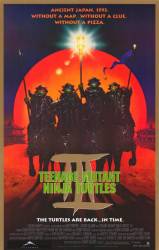
Question: Why does Mickey want to stay behind with Yoshi, at the end, when Raph has had the connection with him throughout the film?
Answer: Michelangelo wants to stay behind for the same reasons as Raphael: because in that time and place, they are well respected, even revered as heroes. They can live openly and not be banished to sewers or subway stations.
Mikey didn't want to stay behind because of Yoshi but because of Mitsu. Raphael even points out that she's the reason he doesn't want to return. When Mikey says they should stay, Raph responds, "Now, forget about Mitsu and give me the scepter."
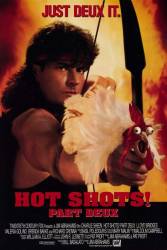
Question: What is the symbol on Saddam Hussein's pajamas?
Chosen answer: It appears to be his initials "SH" in the style of the New York Yankees "NY" logo. He's also wearing pinstriped pajamas that look like the Yankees uniform.
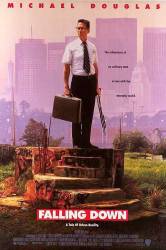
Question: Why does the Beggar throw the apple at D-fens? I found it odd since he just gave him a briefcase and a lunch.
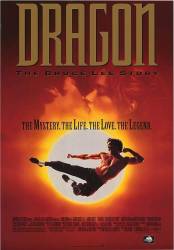
Question: What was this demon really supposed to be?
Answer: His belief in a family curse.
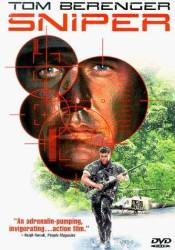
Question: What knife was used by Billy Zane?
Answer: According to an old post on the Bladeforums website, it was an 8" Al Mar Shadow.
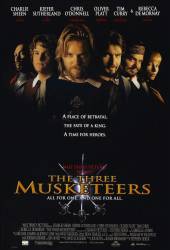
Question: Is D'Artangne's gold sword the same prop sword which Ignio Montoya used in The Princess Bride?
Answer: No. Inigo's sword has a jeweled hilt. D'Artagnan's is not jeweled.
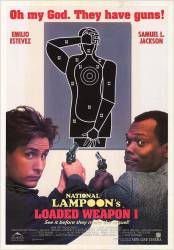
Question: The station wagon they use in Loaded Weapon 1, is it the same car they use in the Lethal Weapon movies, or is it one that just looks similar?
Answer: Just one that looks similar.
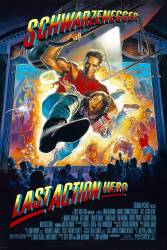
Question: On IMDB it says in this film there are some INTENTIONAL continuity errors. Does anyone know any of the intentional errors, perhaps along with a timecode?
Chosen answer: The kid points them out in the film, in order to convince Arnold's character that he inhabits movieland. Also, after Arnold's character falls into the tar pit he is able to completely wipe himself clean, an obvious intentional continuity error.
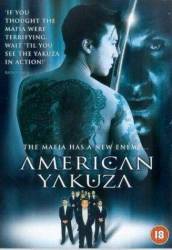
Question: Why does Nick/David reply with 'Steven' when asked his real name at the end of the film? I'm assuming I'm missing something; surely this isn't a mistake that nobody picked up on because that would be enormous.
Answer: I've listened several times, but it sounds like he says "it's David." I think the actor trying to use a soft, sad voice makes it come across as "Steven," and whoever did the closed caption put "Steven."
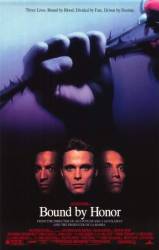
Answer: They are not paleontologists, just people interested in dinosaurs. It is common for museums and other scientific organizations to offer the general public an opportunity to participate in a real paleontology dig. For a fee, they become an exhibition team member for a period of time, learn about dinosaurs, help excavate fossils, and so on. This is likely how Dr. Grant (or his institution) supplements his research funding.
raywest ★